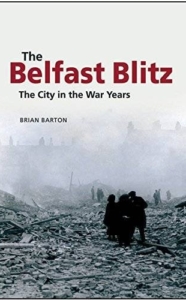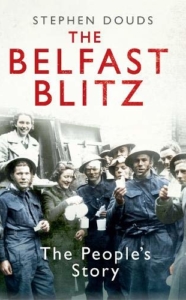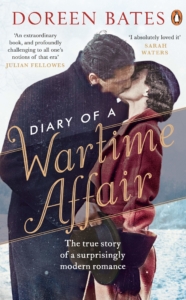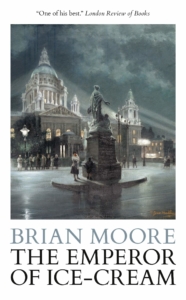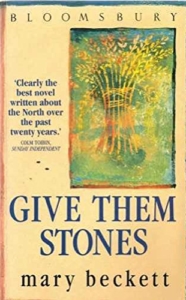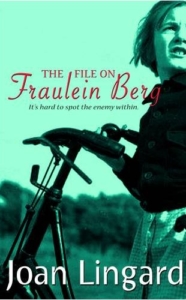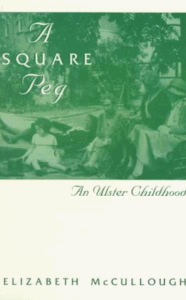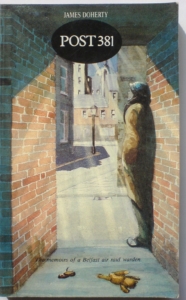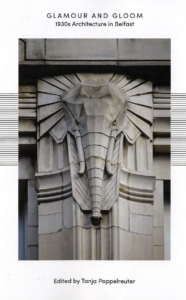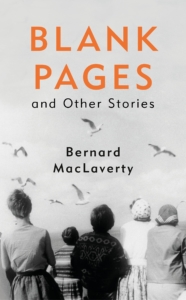Writer Lucy Caldwell on about her love for short stories and why we should celebrate our homegrown talent
Aine Toner for the Belfast Telegraph

Photo by Tom Routh
It is a pleasure to speak with Lucy Caldwell, award winning novelist, playwright and short story writer, someone who is keen to promote the variety of Northern Irish creative talent.
er writing career has been varied and significant, delivering personable, believable works that have captured critics and readers alike.
In March, she’ll add another string to her bow — her first foray into historical fiction with the publication of These Days.
The novel centres on sister Emma and Audrey, living in Belfast during April 1941, at one of the most turbulent points of the Second World War.
“When my son was a toddler, he was obsessed for a while with the Janet and Allen Ahlberg book, Peepo!” explains Lucy of the children’s book set against the backdrop of the war.
“I got fascinated with the London Blitz which of course, when you think of the Blitz you default into London, and so many of my favourite writers were London Blitz writers like Elizabeth Bowen, Graham Greene and Virginia Woolf.
“I wrote the short story, and I started to think hang on, there was a Belfast Blitz and that has not been anything we ever learned in school.”
There have been few novels based around the Belfast Blitz and though it doesn’t exist within so much fiction, it’s still within living memory, says Lucy.
“As lockdown happened and everything started closing in, I really felt I had this new way of understanding the people then, living through these times.
“My own son was six at the time when the first lockdown happened. I was interviewing people who were in their 80s. It had an impact on me; the elderly were the first ones we were losing [to coronavirus].
“I thought about what my son was going to remember about all this time, and I asked people of what they remembered living through the Blitz when they were six or seven.
“Even though it’s a historical novel, and it’s very much a faithful historical novel, I was really writing about what it meant to live in our days as well.
“You automatically think of the Troubles, and the 70s or the 80s. But there was a whole other chapter to the city that I was kind of writing into being in fiction.”
We share a mutual love for Joan Lingard’s Kevin and Sadie series and talk about how reading those at a young age made you feel almost special, having novels written about our locality.
“I remember my mum driving us and stopping at Cypress Avenue, explaining how it was in a film,” says Lucy.
“It’s like a door opens when you realise the place you come from is as worthy of being in those films and stories.”
Fellow writers have already praised These Days, with Jan Carson calling it a ‘novel which looks suffering straight in the eye and yet will leave you full of hope.’
It’s a pretty accurate summation of writing from Northern Ireland, we say. We plough on regardless of what’s going on.
“Do you know who’s a brilliant model for that? Toni Morrison,” says Lucy, who is a Fellow of the Royal Society of Literature.
“She gets asked in an interview about writing — and she’s writing about racism and these really difficult things — and she says you can write them so long as you engineer moments where the light can come in.
“I love that, and I think that sometimes, that is what you’re doing.
“You’re taking this dark stuff but you’re making something of it and you’re showing ways through it and you’re writing towards those moments of light.”
Last month, Lucy hosted the second NI Writers Day, in association with RSL. Was she pleased with how it went in terms of showcasing the wealth and diversity of writers and genres in the place we call home?
“I was really pleased with it. Especially something that’s showcasing Northern Irish literature, you feel responsibility for that,” she says.
“When I was doing my anthology, Being Various [an anthology of new Irish short stories which Lucy guest edited], you feel the responsibility to present a complex and rich and exciting and maybe different version of the place to the world.
“It was very, very important to me to have a range of writing.
“It was important to me to have a children’s writer [Máire Zepf] because I think it’s the first way that we encounter literature, the stories that were told as children are so important.
“I think it takes so much more for a book that you read as an adult to become part of the fabric but reading as a child and I have young children myself and reading to them, that’s the way that you’re most intimate with your children, when you’re kind of cuddled up to them and reading.
“It was really important to me as well that Máire, who writes as gaeilge. I’m not an Irish speaker myself but it was really important to me that that was represented on the day.”
Inclusion for other genres was paramount for host Lucy.
“It was really important to me as well to have science fiction, someone like Ian McDonald has written three dozen books. He’s been nominated for or won awards in all of the genre fiction awards, and he is someone who is maybe not always celebrated outside of a sci fi fantasy circle.
“Similarly, Steve Cavanagh, he’s sold over a million copies of his last book alone. He’s translated into I don’t know how many languages; he has won such prestigious awards. I think that crime writing fiction… I’ve said in the absence of any truth and reconciliation commission, it’s been a lot of our great crime writers that have had taken on a lot of those things.”
Poet Abby Oliveira also featured ‘poetry has long had the freedom of the highway in the north with all of our great talent’ and Lucy applauds the genre and in particular, performance poetry.
“It’s kind of a new art in the 21st century, really, in terms of the ways that it celebrated, the poetry slam, the sort of crossover with hip hop, the ways that young people might engage with poetry.”
Lucy hopes the Writers Day can blossom and perhaps to include the writers shining a light on and engaging with the natural world, such as young environmentalist Dara McAnulty.
Every Northern Irish author I’ve interviewed has always taken time to generously promote others’ work. Positive promotion is something that benefits the industry, says Lucy.
“You see something like Anna Burns winning the Booker for Milkman, it lifts everyone up. It’s not just her victory, and although it is and it’s deserving, it shines a light on all of us. It makes us all better. And I think we all learn from all the sort of achievements and gains that everyone makes.”
Plus, the ability to write about our locality means an opportunity — as Stuart Neville previously said — to write in a dialect and language exclusive to this shore.
“I think, some stories, some books like Milkman or maybe like Paul McVeigh’s A Good Son, about a young boy and his sexuality, you can’t write that in the immediate aftermath of having experienced it,” she says.
“It takes maybe years, maybe decades for something like that to alchemise enough to be the stuff of fiction or for the writer to be able to write things like that. I think there’s still so many more stories about the Troubles that need to be told — and there are other stories.
“One of the things I love about Jan Carson’s writing, and she’s got a brilliant book coming out next year, is her writing uses more and more and more of the Ballymena dialect and lovely Ulster Scots phrases and idioms.
“Every time I read Jan Carson, I think of my grandma, my dad’s mum, her family were all Ulster Scots, and the phrases that she used. I have a note on my phone, where every time I remember one or my dad remembers one, I’ll write it down. It’s so gorgeous and again this is part of the melting pot in Northern Ireland.”
Short story writing is never far from her output, and in October, Lucy won the BBC national short story award for All the People Were Mean and Bad, wherein a mother and her young child take a transatlantic flight after a relative’s death.
Each detail is carefully weighed, each description is necessary and I read it almost forgetting to exhale. Dubbed ‘masterful storytelling,’ it’s a type of writing — second person narrative — that Lucy has been working out how to create.
“How to make it as intimate as possible that the reader, as you say, has to almost hold their breath,” she says.
“The reader is privy to something really, really profoundly important. And they’re right up there, hardly daring to breathe, you know.
“And also, kind of trying to write truthfully, as well. I suppose that doesn’t necessarily mean that it literally happened in terms of flights, the longest I’ve done is London to Belfast and believe me, that’s kind of long enough,” she laughs.
Lucy thought about the story for close to a year before writing a word.
“When I knew that I could make it work, it was when I heard in my head, the tone, and I realised that the tone was one of elegy,” she explains.
“As soon as I could hear that, I wrote that first draft in a couple of days.”
A lover of the short story form — her works Multitudes and Intimacies have been critically praised — says it was years before they began to work.
“I signed the deal for my first novel, I was 23, and I had this vision for a collection of stories that would all be narrated by girls and young women. They’d all be set between Belfast and London and here will be stories you wouldn’t expect of Belfast in the 90s.
“And I wrote all these stories and not a single one of them worked and the collection as a whole was even less than the sum of its parts.
“It was such a lesson for me because, naively I’d written a novel, it can’t be that hard to write a short story. I realised just how hard it is to make a short story work.
“And when my short story started working, it was when I realised that even though you’re writing them in prose, they aren’t prose narrative, they have much more in common with a poem or a play, something with that kind of intensity.”
That intensity relates to every inclusion within the story — down to punctuation.
Lucy mentions a quote from Seán Ó Faoláin, one of her favourite Irish short story writers, and it seems apt given where a section of All the People Were Mean and Bad is located.
“He says the novel is like a jumbo jet. It can carry a huge amount of people vast distances; it needs to lumber along for quite a long time before it takes off. Once it’s airborne, it can go a long way with a lot of people,” says Lucy.
“He says a short story, in contrast, is like a hot air balloon. It can carry like only a couple of people, but it can soar to really vertiginous heights and I love that way of thinking of them.”
Going back to the first lockdown, Lucy found it difficult to read novels.
“It was as though I didn’t have the spare emotional capacity to invest in the whole world. But what I could every day is sit down and read one short story. A novel is a more forgiving form; you can read a novel on your commute or in the bath or chapters before bed.
“The short story is much less forgiving because you need to read it in one go. That’s why it can be sometimes quite hard. If you can read a short story like that, they can be incredibly powerful.”

 Lucy talks to Tom Suthcliffe on Front Row about her short story “All the People were Mean and Bad”, winner of the BBC Short Story Prize. You can hear the full story
Lucy talks to Tom Suthcliffe on Front Row about her short story “All the People were Mean and Bad”, winner of the BBC Short Story Prize. You can hear the full story 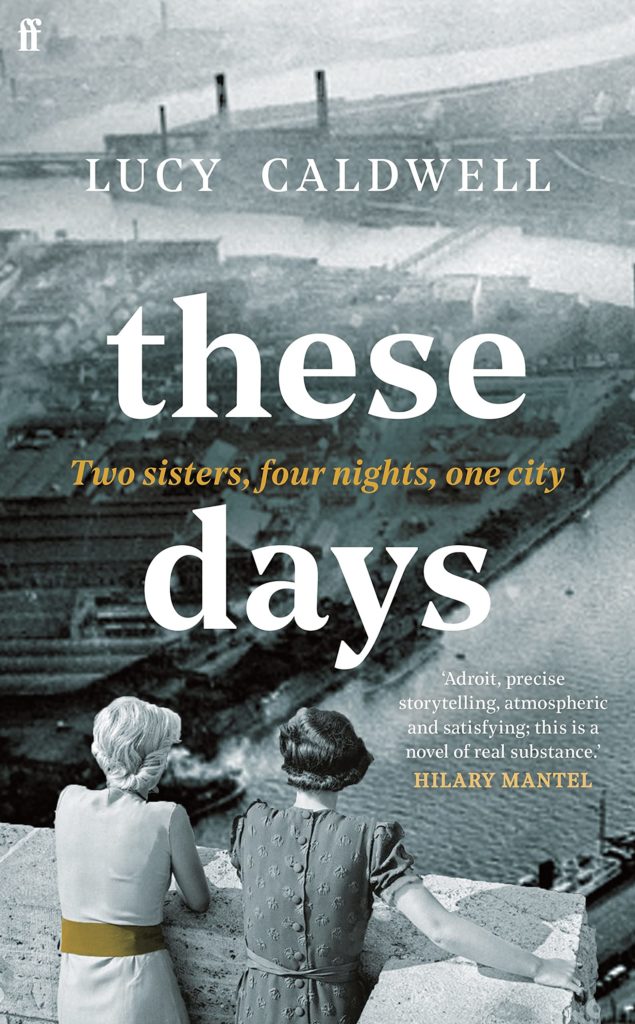 Two sisters, four nights, one city.
Two sisters, four nights, one city.